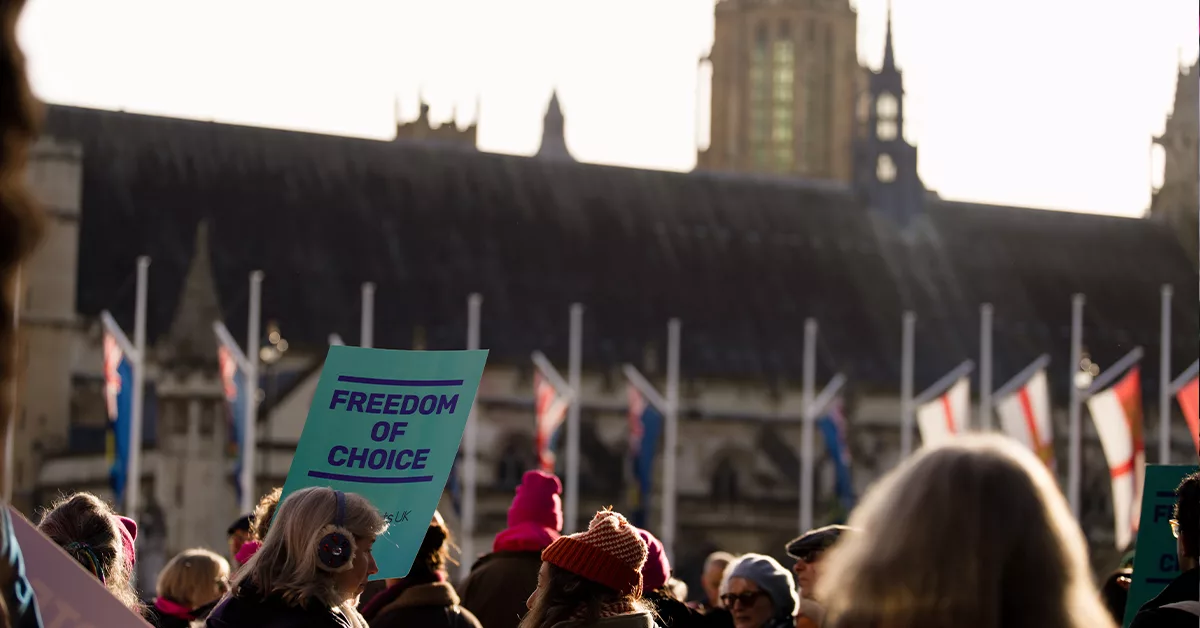
The Terminally Ill Adults (End of Life) Bill committee has published evidence submitted by Humanists UK. In its evidence, Humanists UK urged the committee to look broadly at assisted dying frameworks to ensure they are accessible, easy to navigate, and safe.
Humanists UK highlighted how the six-month prognosis limit in the Bill may pose significant issues for terminally ill individuals, particularly those with neurodegenerative conditions like Motor Neurone Disease (MND) and Parkinson’s, where suffering can begin long before the final six months of life. Cognitive impairments in advanced stages of neurodegenerative conditions like Huntington’s further complicate eligibility, as patients must retain capacity throughout the process. Broader approaches, such as those in Scotland and Australia, ensure access for more individuals.
Additionally, Humanists UK has called for a tribunal system, like those used in Spain or mental health cases in the UK, as this may offer a more compassionate, efficient, and rigorous approach compared to the High Court. Tribunals, involving medical and legal experts, could ensure robust safeguards without creating delays or court capacity issues.
The submission from Humanists UK also covered broader ethical and procedural considerations, such as allowing doctors to initiate discussions about assisted dying, enabling conscientious objection without obstructing access, and ensuring that civil liability protections extend to all those who support a loved one through the process.
Nathan Stilwell, Assisted Dying Campaigner at Humanists UK, said:
‘We are pleased that the Committee is taking discussions around process and eligibility seriously. Our evidence underscores the need for a law that truly prioritises dignity and fairness for the terminally ill. The current six-month prognosis limit is overly restrictive and overlooks the lived experience of those with conditions like MND or Parkinson’s. We hope the Committee will consider these points and work toward a framework that offers greater compassion and inclusivity.
‘We continue to advocate for an assisted dying law that has both strong safeguards and equitable access, ensuring that all terminally ill adults who seek to end their suffering have a dignified and humane option.’
Notes
For further comment or information, media should contact Nathan Stilwell at nathan@humanists.uk or phone 07456200033.
If you have been affected by the current assisted dying legislation, and want to use your story to support a change in the law, please email campaigns@humanists.uk.
Media can use the following press images and videos, as long as they are attributed to ‘Humanists UK’.
Humanists defend the right of each individual to live by their own personal values, and the freedom to make decisions about their own life so long as this does not result in harm to others. Humanists do not share the attitudes to death and dying held by some religious believers, in particular that the manner and time of death are for a deity to decide, and that interference in the course of nature is unacceptable. We firmly uphold the right to life but we recognise that this right carries with it the right of each individual to make their own judgement about whether their life should be prolonged in the face of pointless suffering.
We recognise that any assisted dying law must contain strong safeguards, but the international evidence from countries where assisted dying is legal shows that safeguards can be effective. We also believe that the choice of assisted dying should not be considered an alternative to palliative care, but should be offered together as in many other countries.
Read six reasons we need an assisted dying law.
Read more about our analysis of the assisted dying inquiry.
Read more about our campaign to legalise assisted dying in the UK.
Humanists UK is the national charity working on behalf of non-religious people. Powered by over 120,000 members and supporters, we advance free thinking and promote humanism to create a tolerant society where rational thinking and kindness prevail. We provide ceremonies, pastoral care, education, and support services benefitting over a million people every year and our campaigns advance humanist thinking on ethical issues, human rights, and equal treatment for all.
